In May 2020, five peer graduate health science institutions in the NWCCU accreditation region joined to develop a data-sharing/peer comparison consortium whose common goal is to improve student achievement, including the identification and closure of equity gaps, within their institutions and to comply with Standard 1.D.3. A sixth graduate health science institution in the NWCCU accreditation region joined the consortium in March 2022. The number of comparator institutions differs by category. Data are published anonymously to protect institutional confidentiality. The data on this webpage includes benchmarked disaggregated outcomes for key student outcomes. Each regional peer institution is assigned a numeric identifier to orient stakeholders to individual institutional data. Data are published anonymously to protect institutional confidentiality.
Notes and Definitions
The data presented are for NUNM students completing their program during the 2022-2023 academic year (July 1, 2022, through June 30, 2023).
A student is counted as retained when they are still enrolled at the university one year after starting their program. Students on a leave of absence are not counted as retained. The data presented are for NUNM students completing the first year of their program during the 2022-2023 academic year (July 1, 2022, through June 30, 2023).
Program-level data are aggregated to develop a peer benchmark for comparative purposes using the definitions below. Please note that although the aggregated data may represent the same type of degree, program curricula and delivery mechanisms (on-campus, online, hybrid) may vary significantly. As such, these benchmarks are meant to guide the university in further study in identifying and closing equity gaps.
For additional compliance, performance, and institutional data, please refer to our Consumer Information page.
Degree Type Definitions
Academic Master’s: Master’s degree that does not lead to licensure
Clinical Professional Master’s: Master’s degree that leads to licensure
Academic Doctorate: Doctoral degree that does not lead to licensure
Clinical Professional Doctorate: Doctoral degree that leads to licensure
Non-Caucasian includes the IPEDS categories of: Black/African American, Asian, American Indian/Alaska Native, Hispanic, Native Hawaiian or Other Pacific Islander, Two or more races.
Graduation Rates
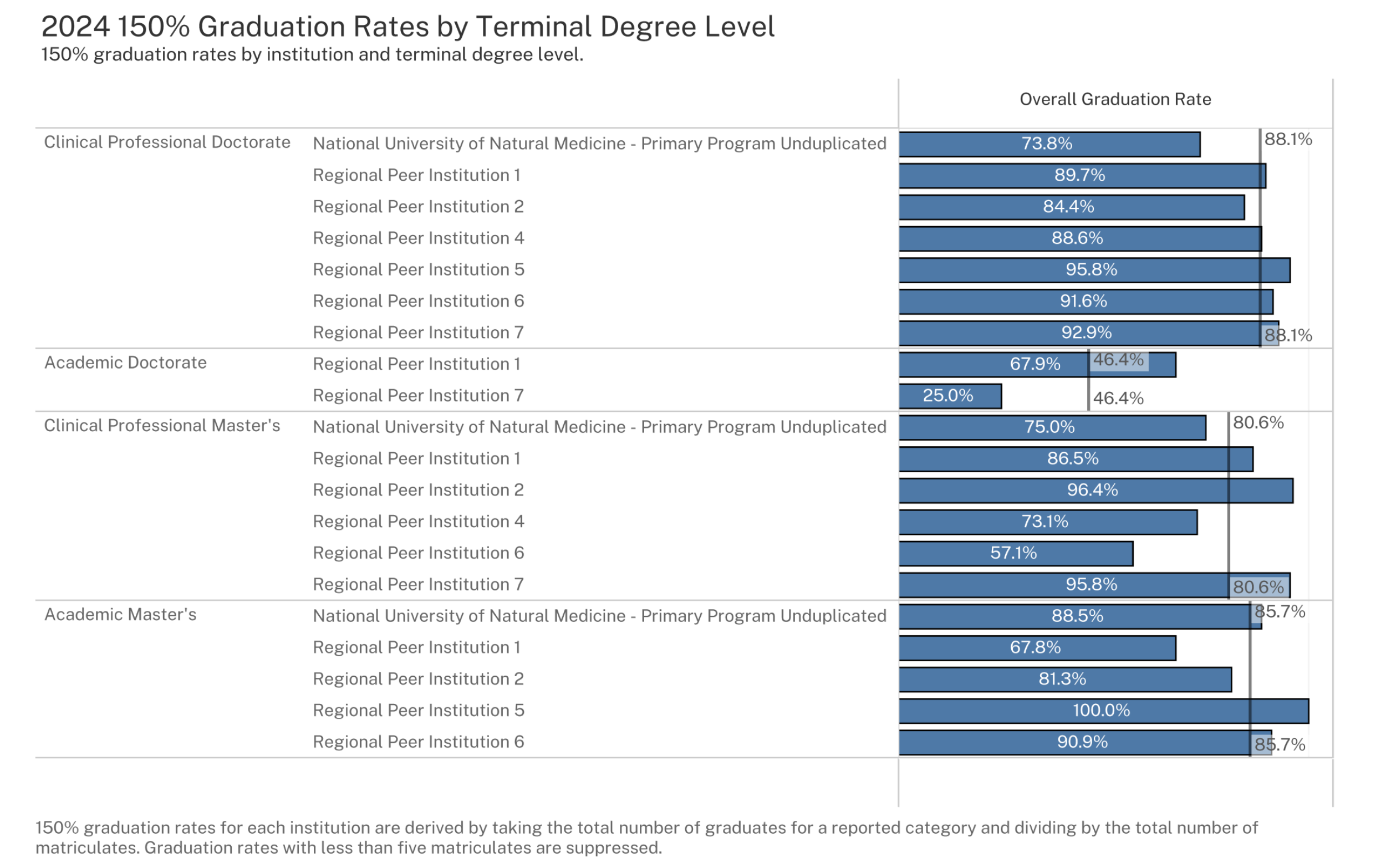
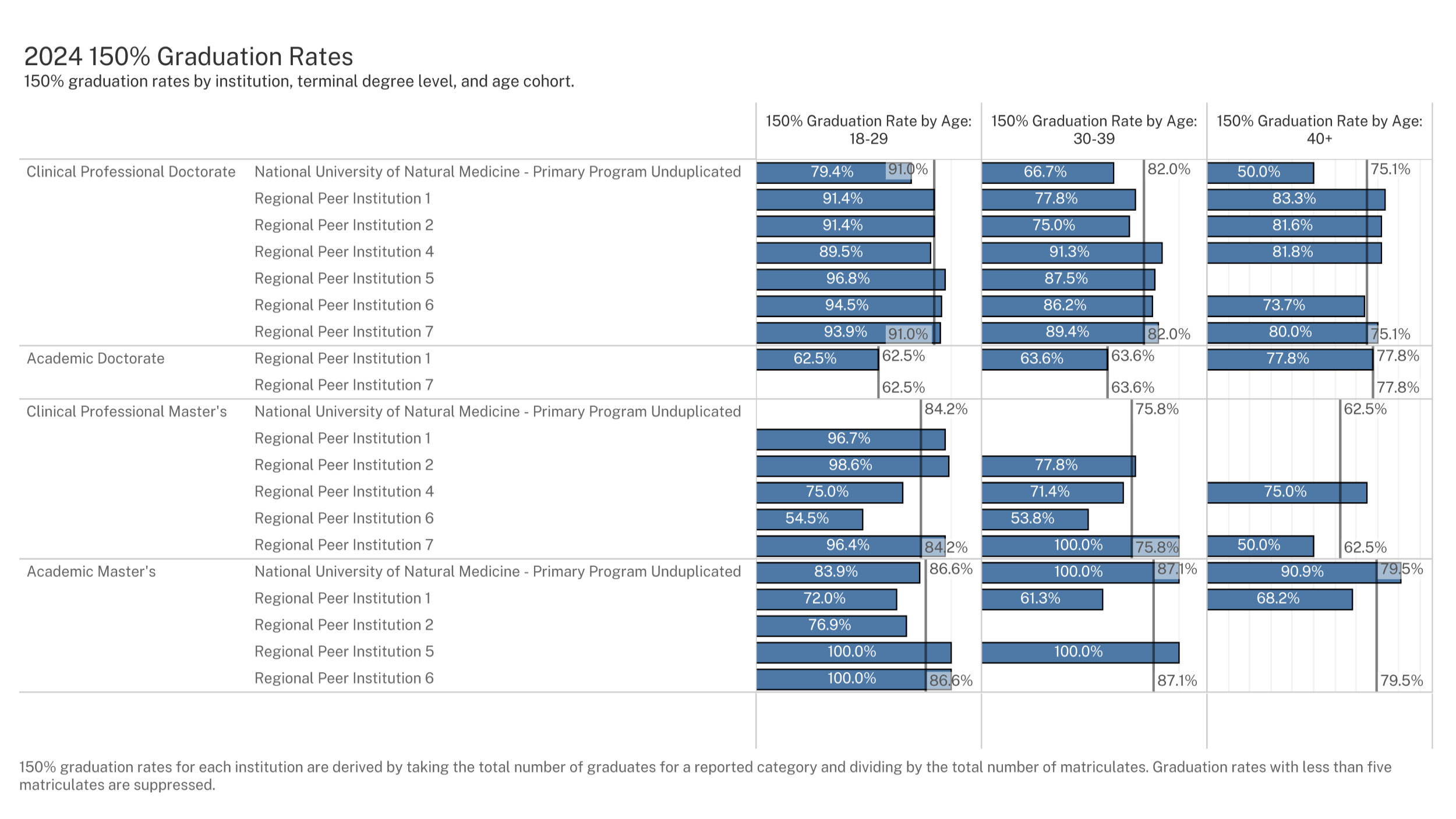
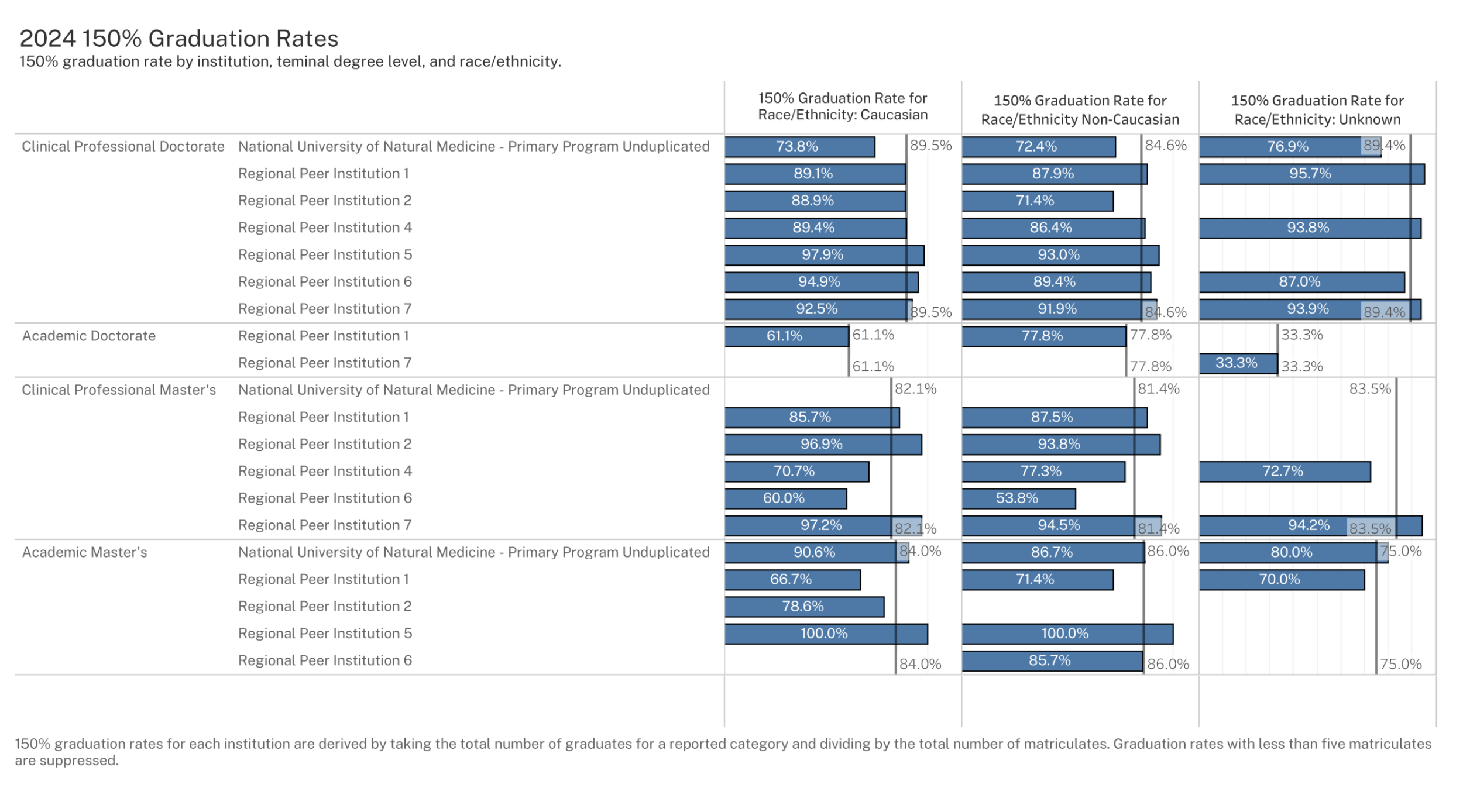
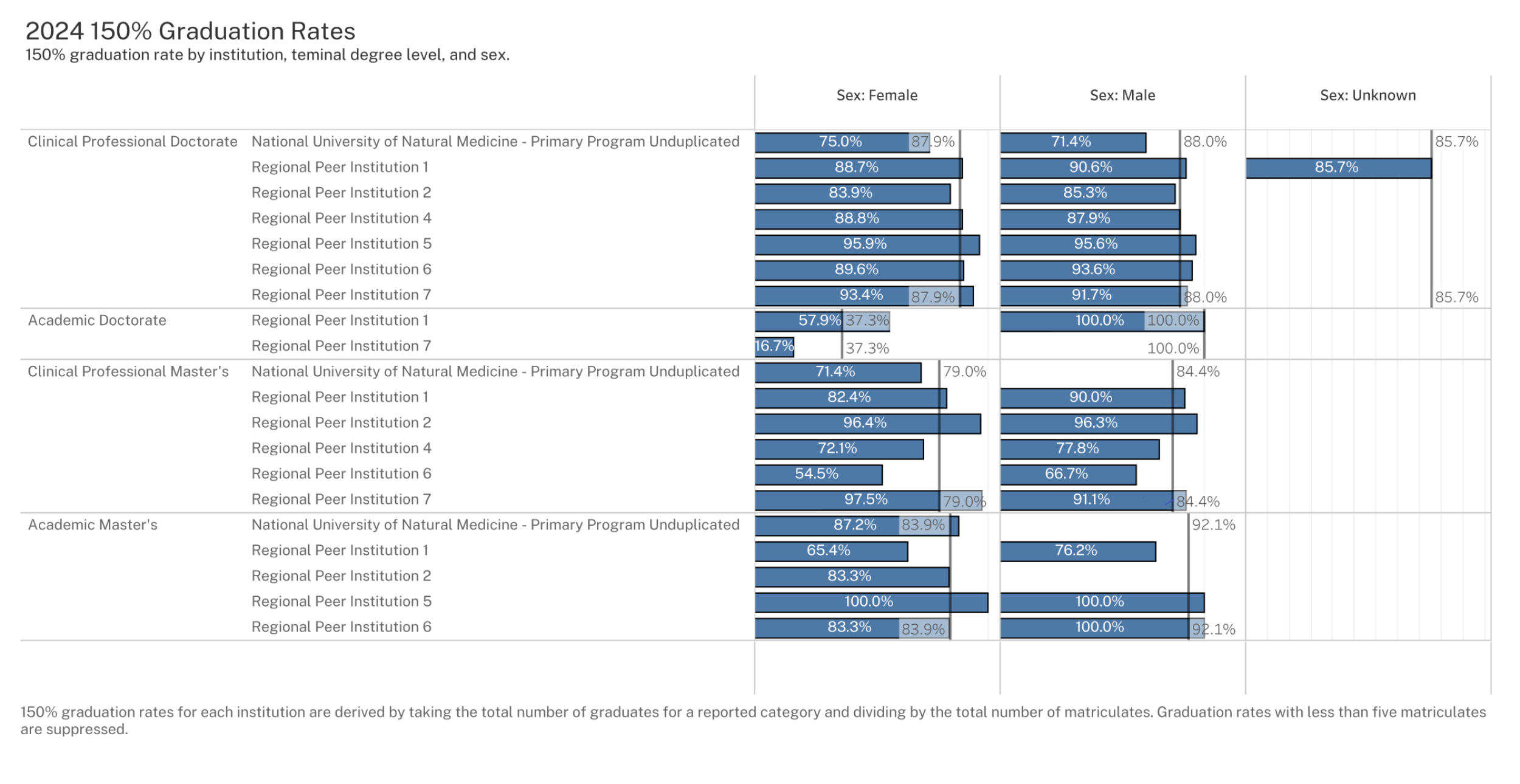
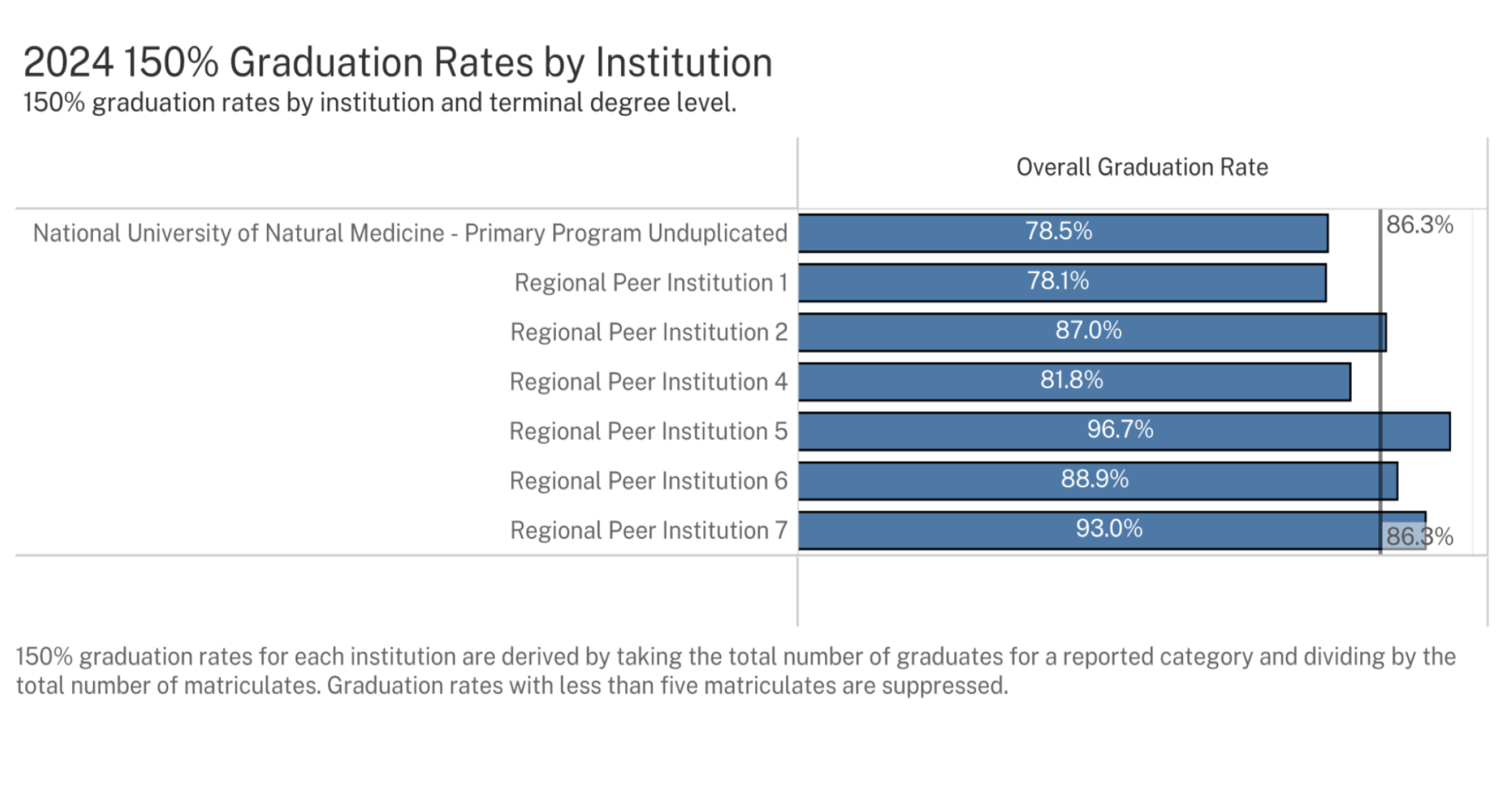
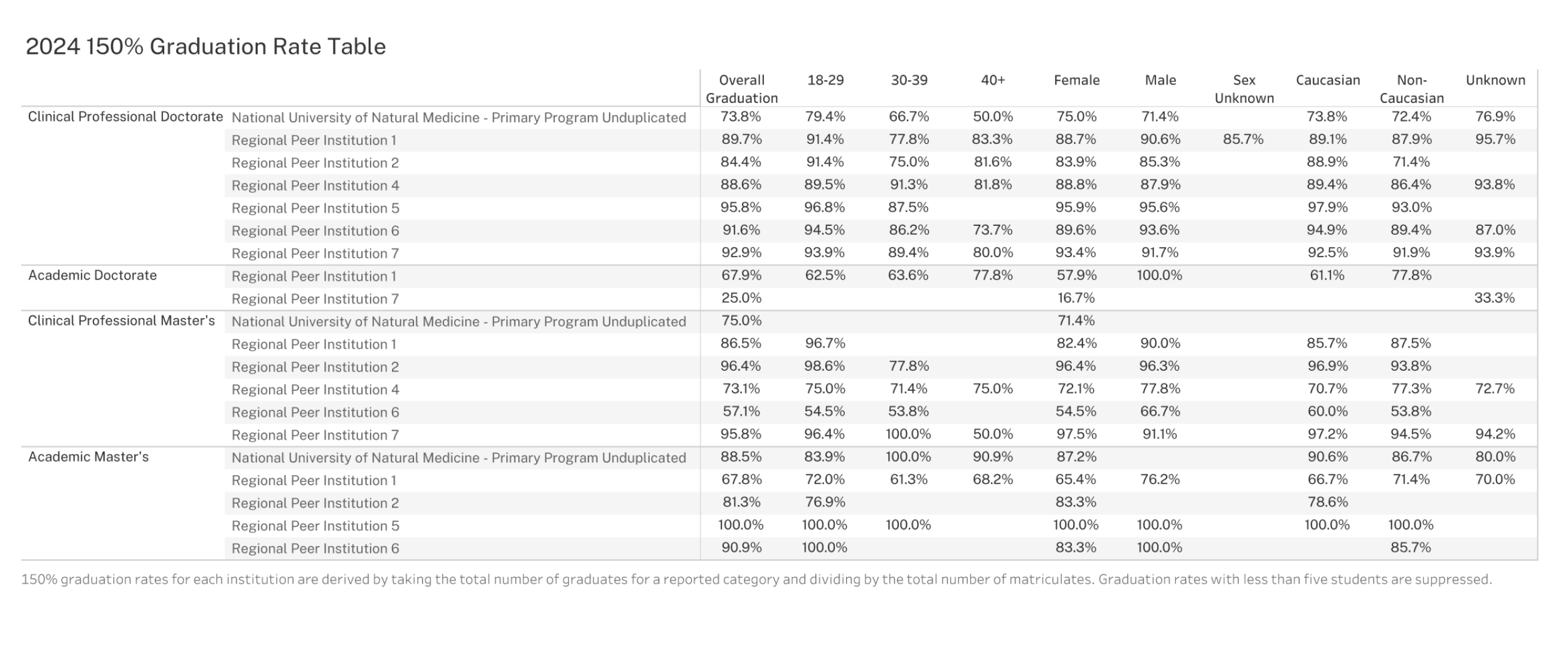
Retention Rates
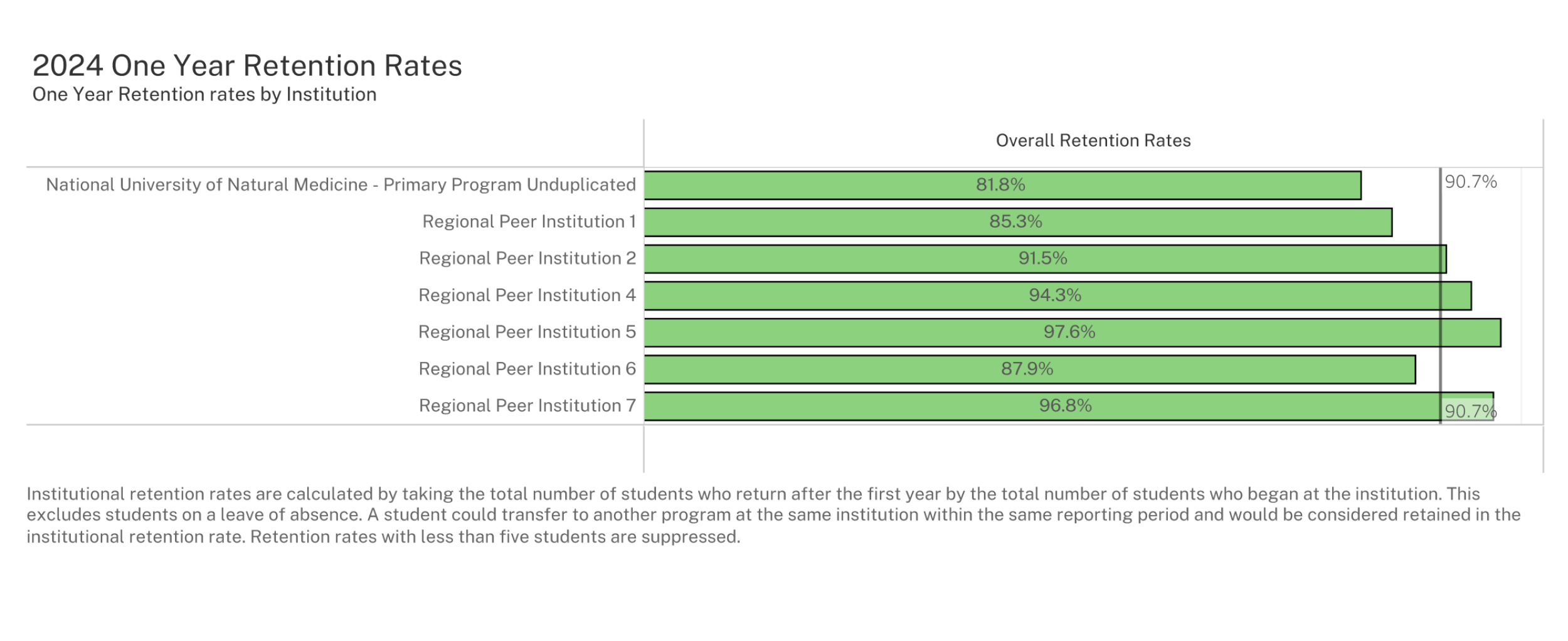
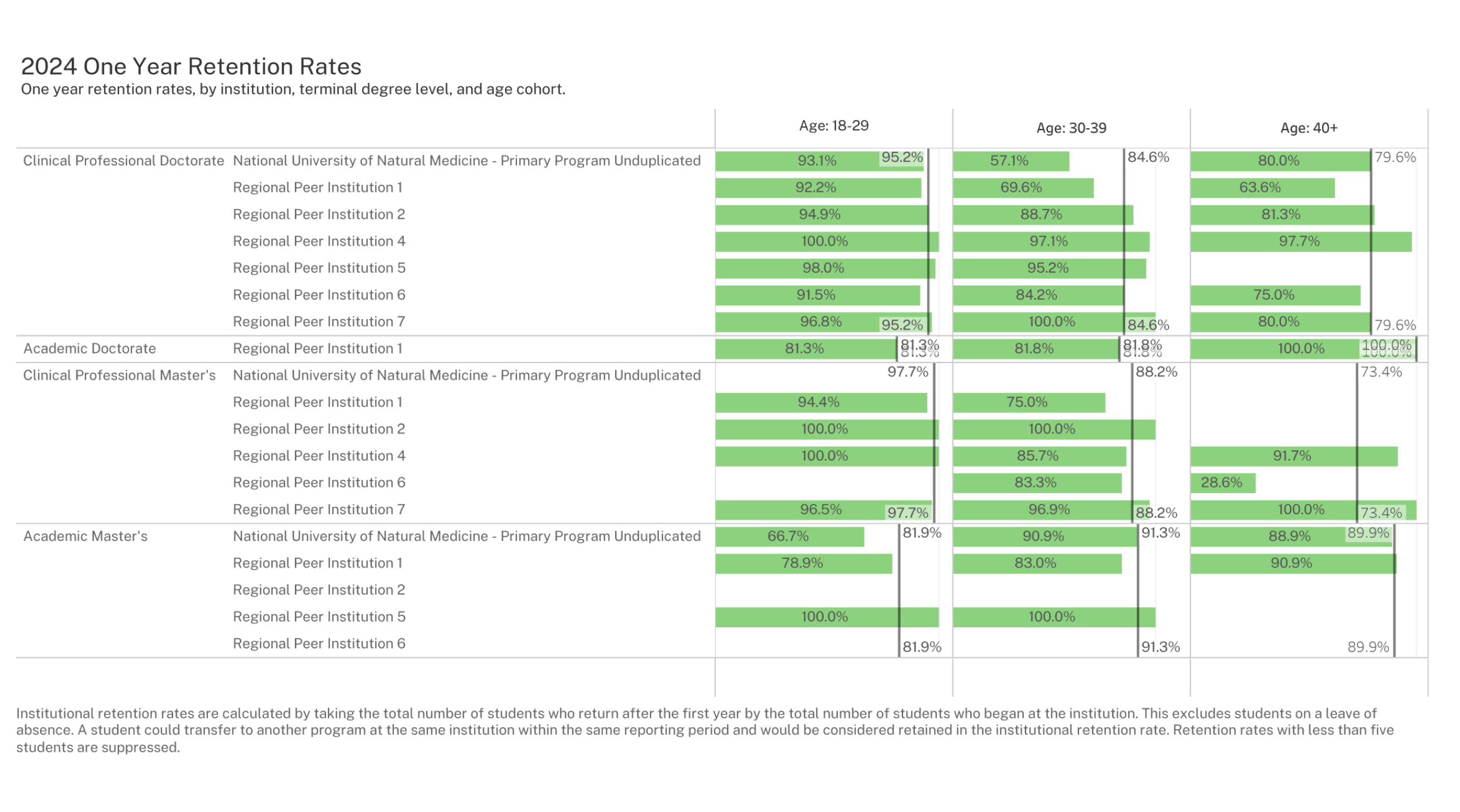
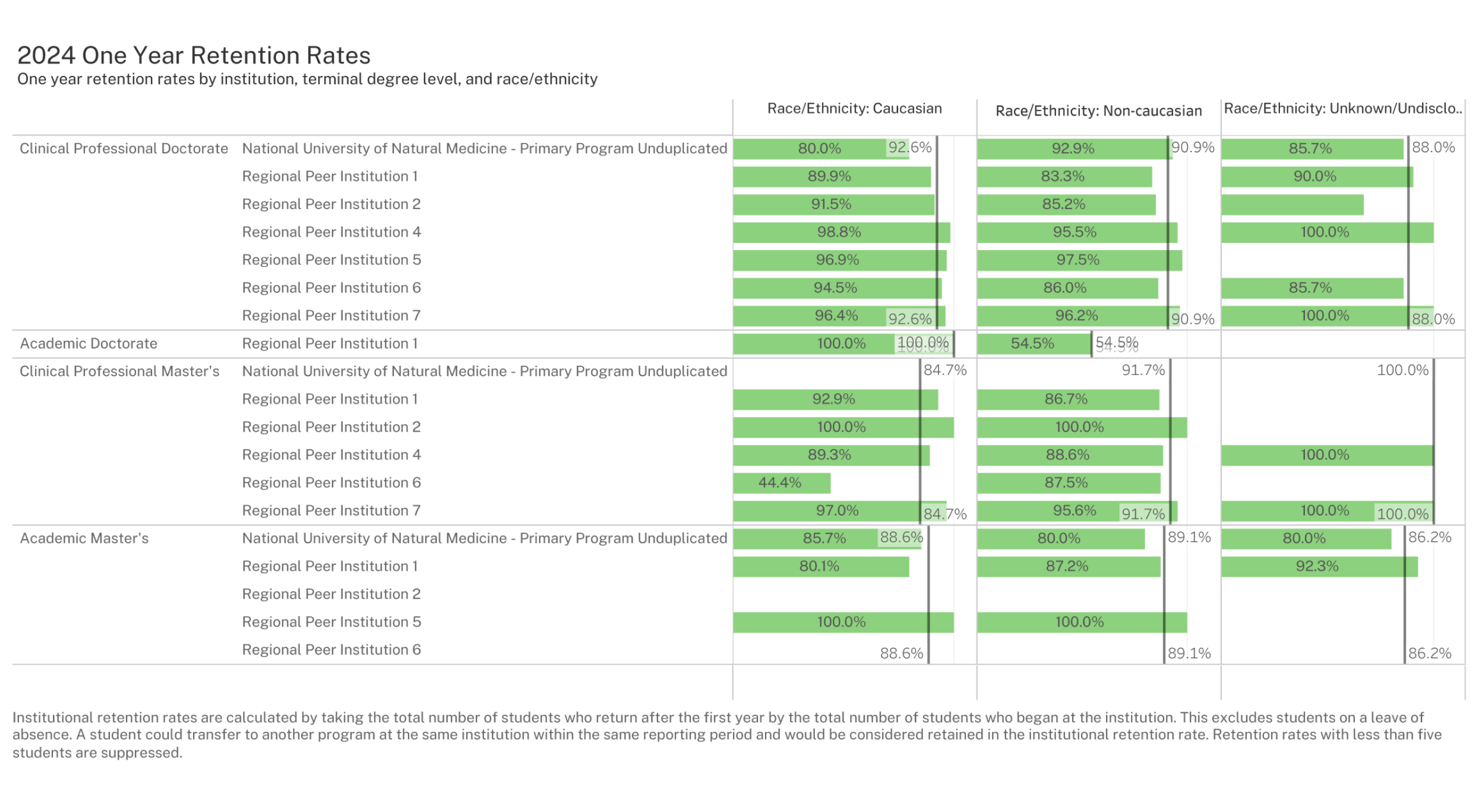
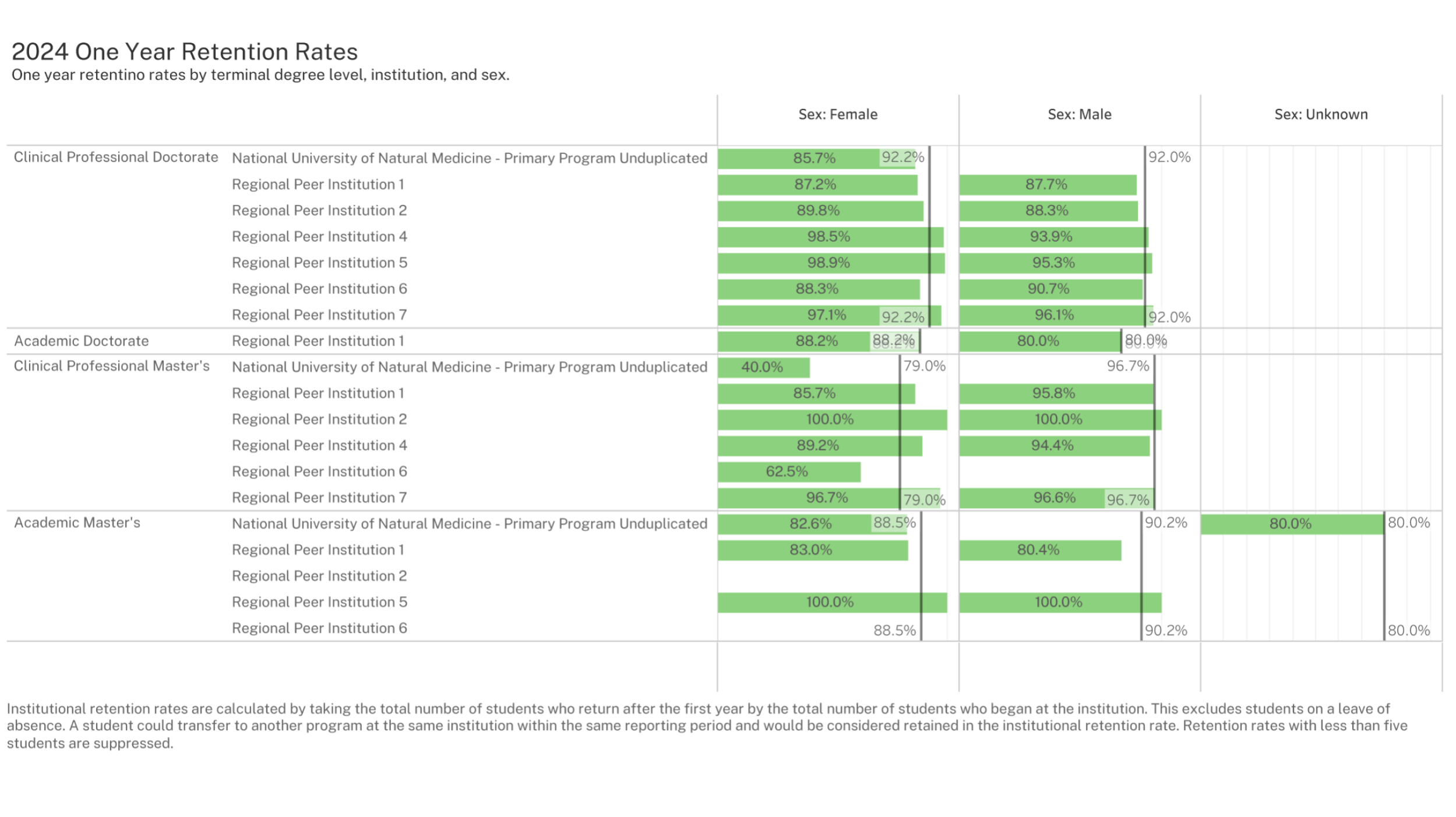
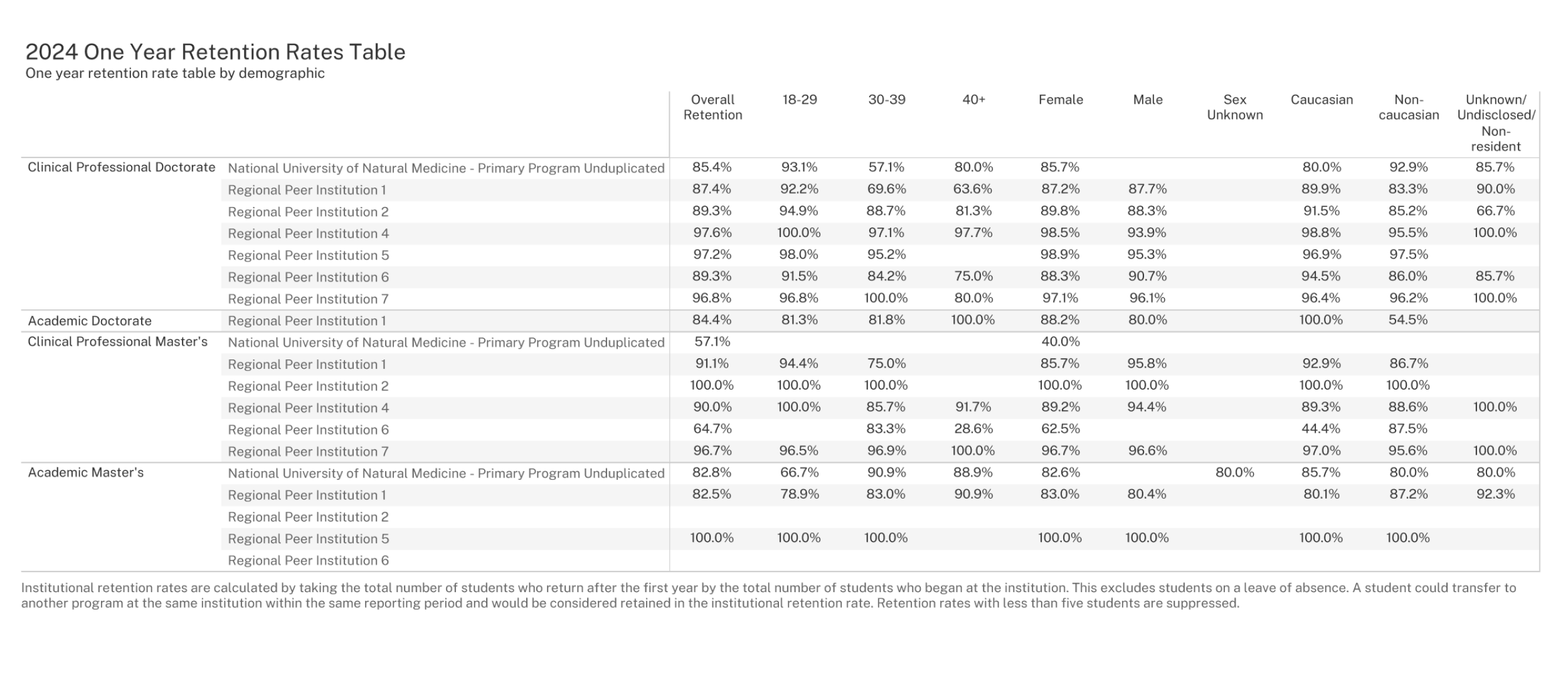
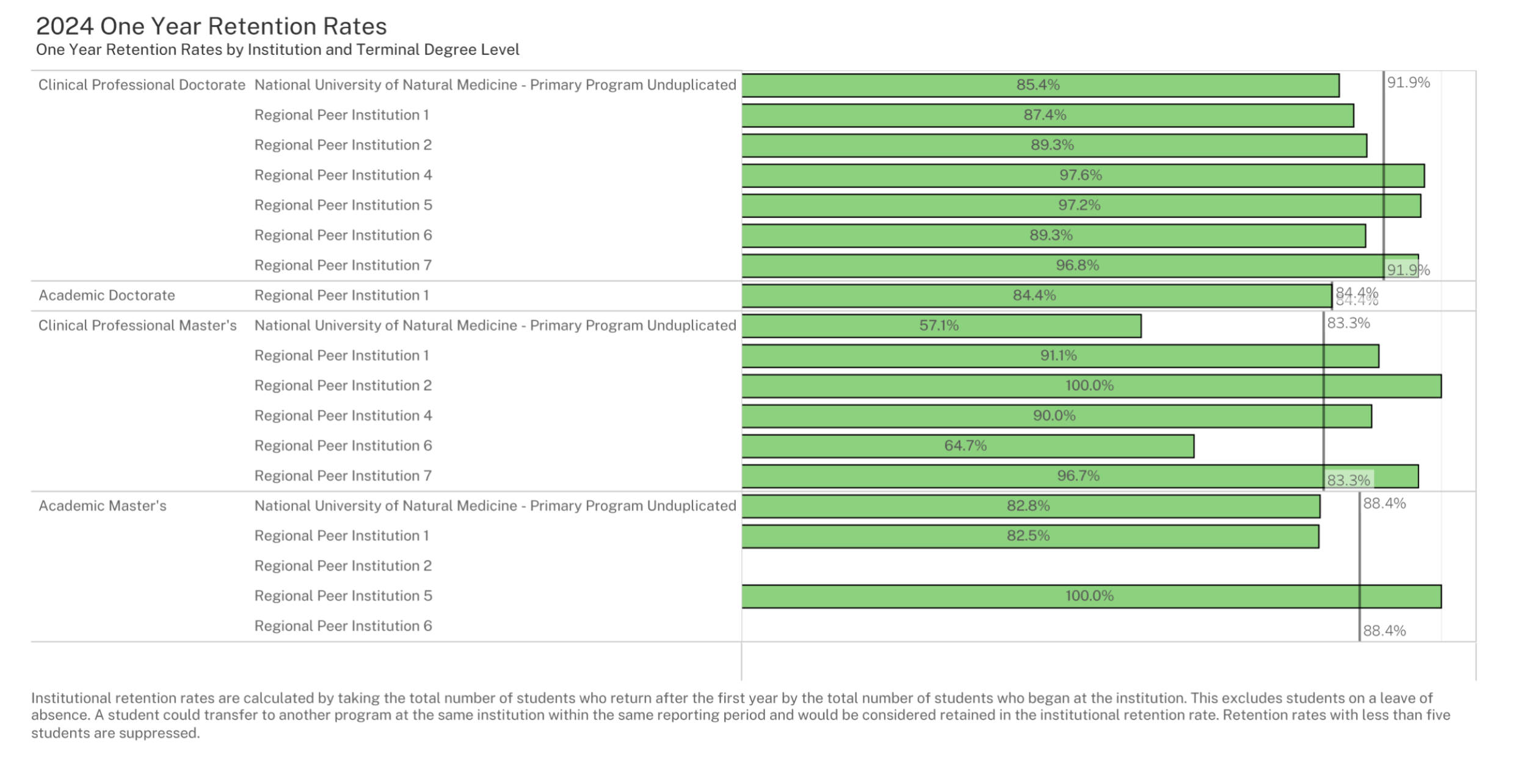
As of fall 2023, NUNM has a total of 372 students. Of these students, 28 are undergraduates, 282 are in stand-alone graduate programs, and 62 are enrolled concurrently in two graduate programs. Thirty-nine students are enrolled part-time. There are six non-degree seeking students.
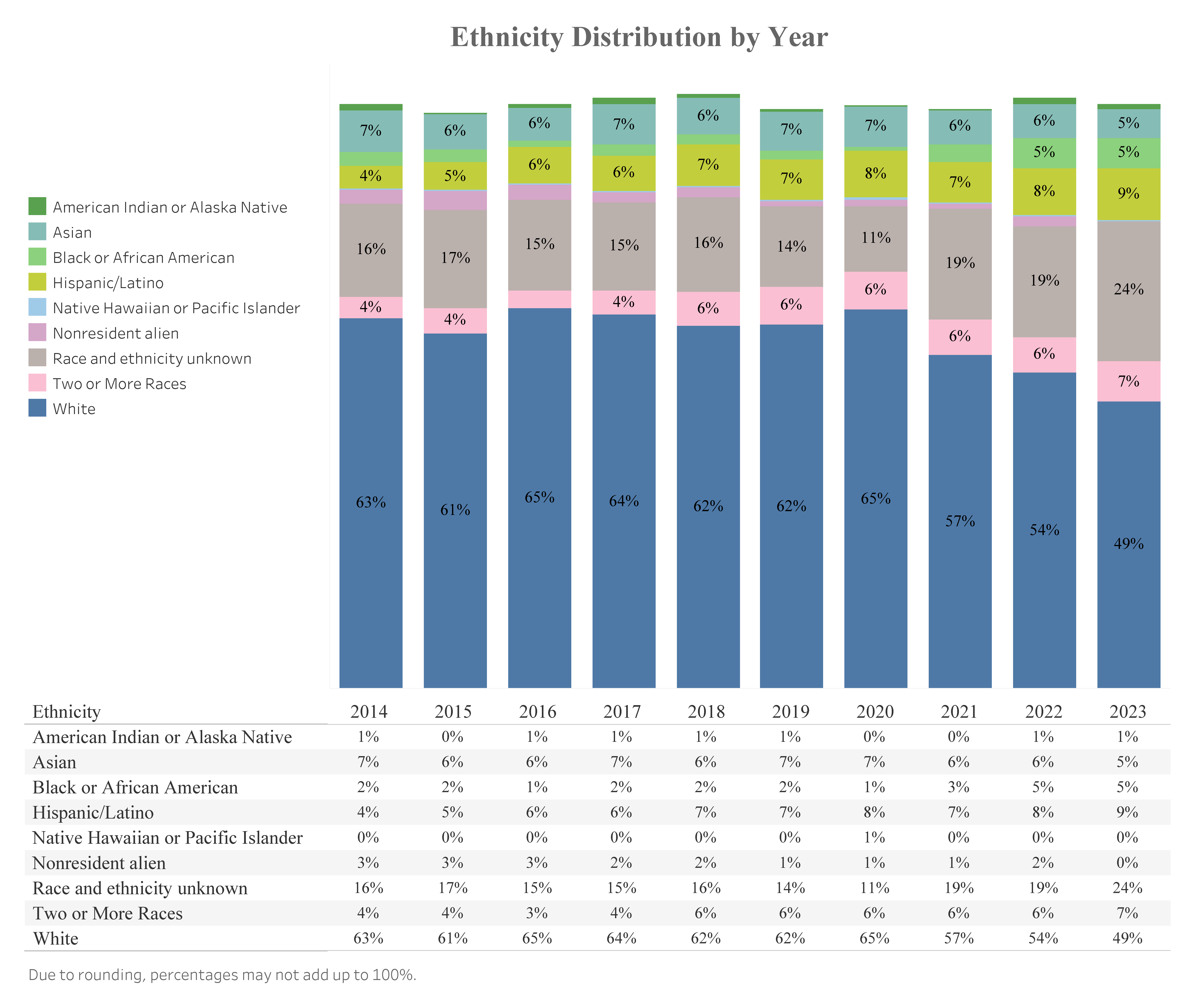
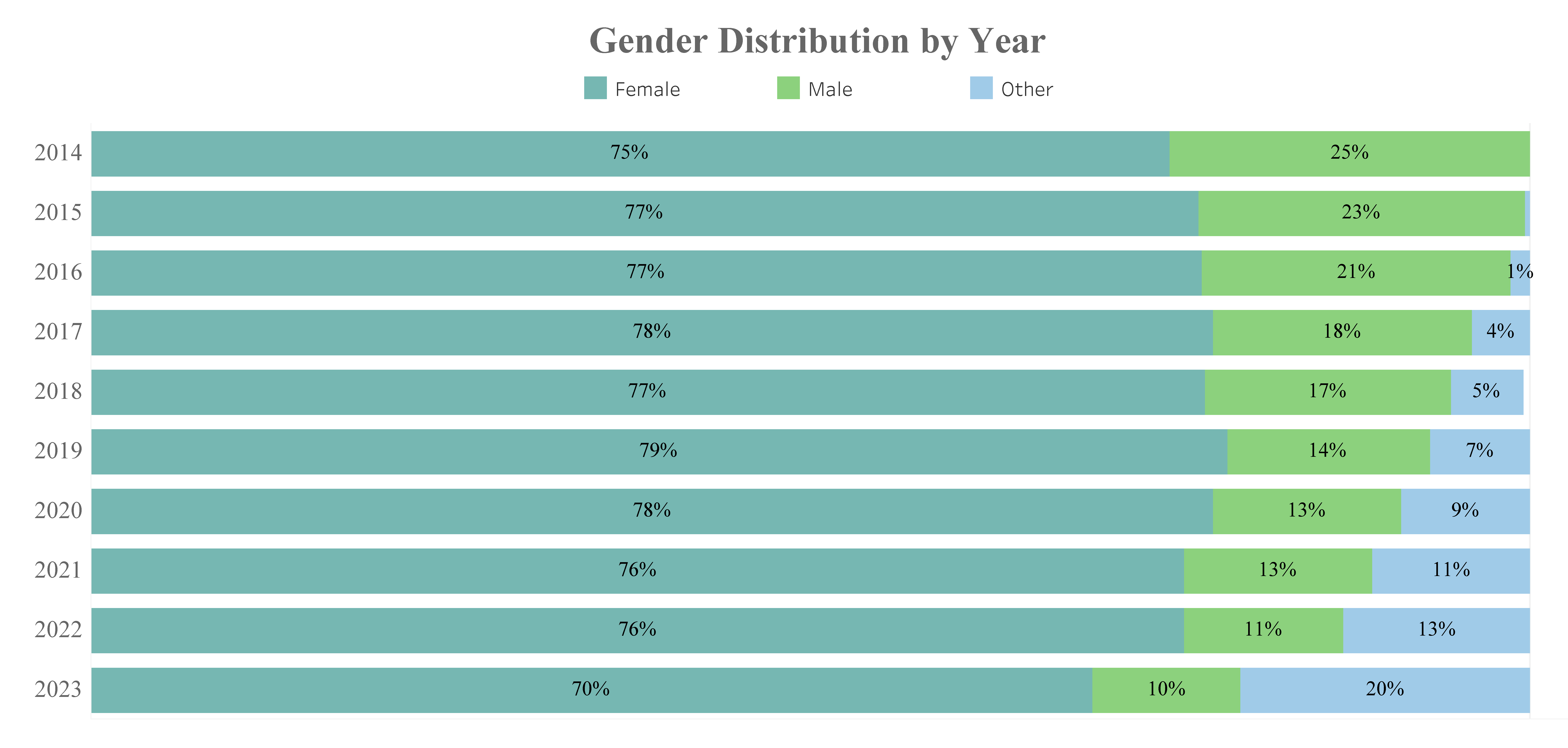
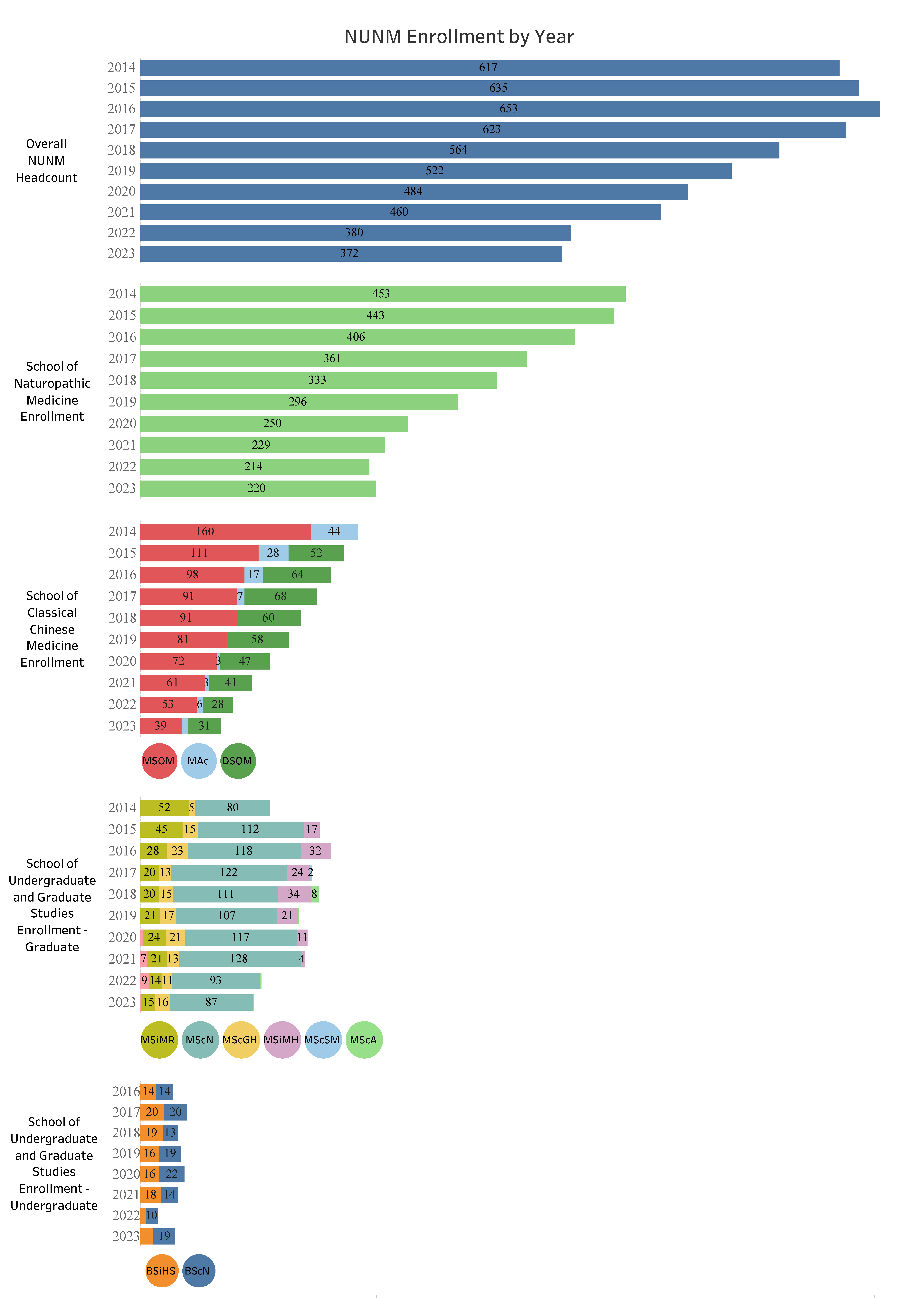
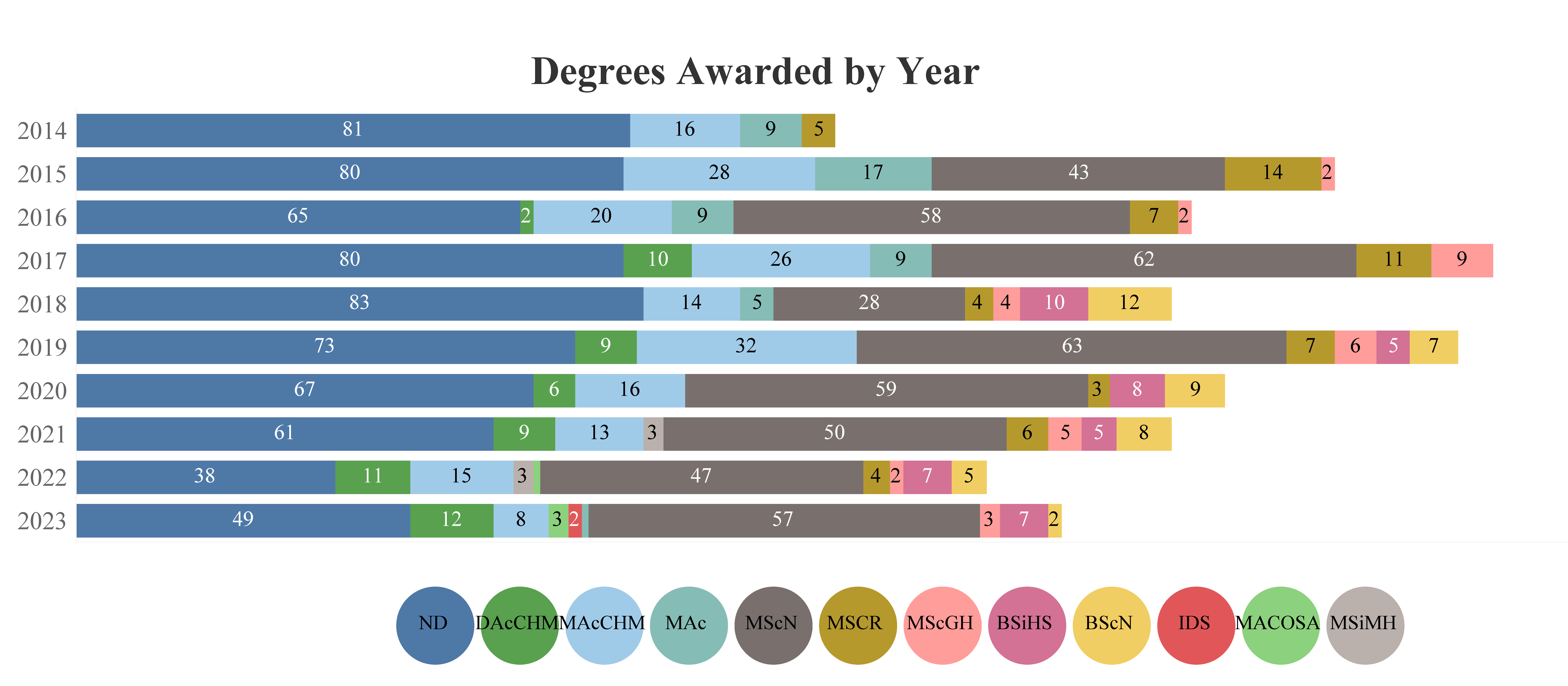
Naturopathic Medicine Board Licensure (NPLEX) Exam Scores
This table shows the NPLEX pass rates for ND students and graduates, listing the percentage that passed taking the exam for the first time.
National Certification Commission of Acupuncture and Oriental Medicine (NCCAOM) Exam Scores
This table shows the NCCAOM pass rates for CCM students and graduates.
Full time staff: 70, Part-time staff: 22, On call: 71